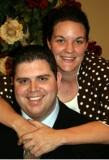
One of the biggest events in kid culture happened this past weekend.
Did you catch it?
In 2006 Disney aired its biggest Original Movie ever – High School Musical. During its preview week this fresh, new, preteen hip hop musical garnered over 7.7 million viewers!
It took the kid world by storm!
What started out as a low budget, made for TV movie, has turned into a multi-billion dollar franchise that covers everything from movies, t-shirts, posters, toys, Broadway spinoffs, Disney on Ice show, concerts, etc.
It is huge!
In 2007 Disney released HSM’s sequel which drew over twice as many viewers as its predecessor – $17.3 Million on the first night! Kids were hosting “High School Musical Parties” and inviting friends over to spend the night and sing along with 
Last Friday Disney released High School Musical 3. This time the show wasn’t launched on TV, but made its way to the big screen raking in more than $82 Million dollars in its opening weekend. That’s a lot of dough.
So, what makes High School Musical so popular?
Kids love the catchy songs, the fresh look, the high energy, and the pure fun of the films. Parents like them because they are relatively clean movies that reinforce core values such as friendship, hard work, loyalty, humility, team work, kindness, equality, and treating everyone as equals – regardless of popularity or perceived abilities.
Paul Asay, writer for Focus on the Family’s “Plugged In” movie reviews states, “HSM3 salutes friendship, family, responsibility and opportunity. It embraces the idea of dreaming big?”
Whether you agree with movies or not, we must recognize that the High School Musical franchise is big. So big in fact, that it has made tremendous ripples on the
I guarantee, even in apostolic churches, that the majority of our kids have seen HSM 1 & 2, and will most likely see 3 some time in the near future.
Knowing this, what are your thoughts concerning the use of movies to illustrate Biblical principles of friendship, loyalty, accepting people despite their differences, hard work, maturity, selfishness, etc?
 I’ve heard of churches using clips of High School Musical in Bible Studies and Kid’s Church lessons in order to illustrate a point with something the kids know and relate to.
I’ve heard of churches using clips of High School Musical in Bible Studies and Kid’s Church lessons in order to illustrate a point with something the kids know and relate to.
Is there value in such a tactic?
I’m not promoting this idea, just opening the door for discussion. Whichever side you fall on, we must all recognize the major impact HSM has made in the world of Kids. If we let it go unanalyzed, we could potentially miss something that could give us a clue into the minds and interests of this generation of kids.
So please, comment below and let me know your thoughts. Would you use clips from HSM in your Kid’s Church or Bible Study? Would you use the popularity of this phenomenon to help convey Biblical truths? Is there value in it? Or does it take away from spirituality and Biblical teaching?


